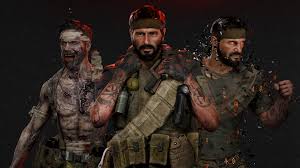Activision has confirmed that the latest instalment in the Call of Duty series, Black Ops 6, will require an internet connection to access its Campaign mode. This news comes in the wake of the game’s reveal at the Xbox Games Showcase, where fans were treated to a first look at the title, set once again in the Gulf War era. While the initial trailer generated excitement, the mandatory online connection for single-player gameplay has sparked significant debate.
New Features and Gameplay Innovations
Over the weekend, Xbox and Activision offered a deeper dive into what players can expect from Call of Duty: Black Ops 6. Among the notable announcements was the reintroduction of the classic prestige system, familiar to long-time fans of the series. This system allows players to progress through over 1,000 levels, with exclusive rewards awaiting those who reach the pinnacle.
Treyarch, the game’s developer, is also pushing boundaries with the introduction of omnidirectional movement. This new mechanic enables players to run, jump, slide, and dive in any direction, potentially revolutionising gameplay and adding a new layer of strategy to both multiplayer and single-player modes.
Texture Streaming and File Size Controversy
Despite these promising features, the news that all game modes, including the single-player campaign, will require a stable internet connection has caused an uproar. On its official support page, Activision explained that the decision to utilise texture streaming technology was aimed at delivering high-fidelity graphics while managing the game’s overall file size. This technology allows the game to dynamically download high-resolution textures as needed, ostensibly keeping the game more streamlined.
However, this rationale has not quelled concerns among the fanbase. Critics argue that despite these measures, Call of Duty: Black Ops 6 still demands over 300 GB of storage space. This large requirement, coupled with the necessity of a constant internet connection, has led many to question the efficiency and practicality of the streaming technology.
Implications for Gamers
Activision has reassured players that no additional subscription services, such as Game Pass Core or PlayStation Plus, will be needed to access the campaign, provided they already own the game on their respective consoles. Additionally, Black Ops 6 will support split-screen local multiplayer on Xbox Series X|S and PlayStation 5, although this feature will not extend to last-generation consoles to maintain performance stability.
The move towards always-online requirements reflects broader trends in the gaming industry, where digital integration is becoming increasingly prevalent. This shift raises critical questions about ownership and access, particularly concerning the longevity and transferability of digital game libraries. With games like Call of Duty: Black Ops 6 relying heavily on online connectivity, players must navigate the evolving landscape of digital rights and access.
Community Reaction and Future Developments
The response from the Call of Duty community has been mixed. While some players appreciate the advancements in gameplay and graphics, others are frustrated by the limitations imposed by the internet requirement. Social media platforms have been abuzz with discussions, as gamers express their concerns about connectivity issues and the potential for increased dependency on stable internet access.
In response to these debates, industry analysts suggest that developers and publishers may need to reconsider their approach to digital rights management and player accessibility. The controversy surrounding Call of Duty: Black Ops 6 could prompt a re-evaluation of how future titles are developed and the extent to which they rely on online infrastructure.
As the release of Call of Duty: Black Ops 6 approaches, the gaming community remains divided over the necessity of an internet connection for single-player content. While Activision’s intent to enhance graphical fidelity and manage file sizes is clear, the practical implications for players continue to stir debate. This development underscores a broader industry trend towards digital reliance, challenging traditional notions of game ownership and accessibility.
In the coming months, the dialogue between developers and the gaming community will be crucial in shaping the future of game design and digital policy. As players adapt to these changes, the balance between innovation and accessibility will remain a central theme in the evolution of the gaming landscape.


